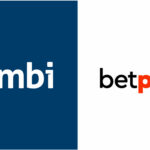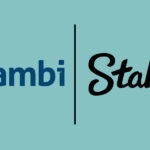Kambi revenue down 13.1% to €37.4 million in Q3

Sports betting technology provider Kambi has revealed that revenue fell by 13.1% to €37.4 million (US$43.0 million)1 EUR = 1.1496 USD
2025-11-05Powered by CMG CurrenShift in the third quarter of 2025.
If transition fees from quarter three 2024 of €2.3 million (US$2.6 million)1 EUR = 1.1496 USD
2025-11-05Powered by CMG CurrenShift are excluded, revenue fell 8.1%.
Revenue from January to September totaled €119.3 million (US$137 million)1 EUR = 1.1496 USD
2025-11-05Powered by CMG CurrenShift, showing a decline of 9.6%, but with transition fees from the same 2024 period of €11.2 million (US$12.9 million)1 EUR = 1.1496 USD
2025-11-05Powered by CMG CurrenShift, revenues declined 1.2%.
Additionally, adjusted EBITDA reached €3.4 million (US$3.9 million)1 EUR = 1.1496 USD
2025-11-05Powered by CMG CurrenShift in quarter three, with a margin of 9%, while the margin for the January to September 2025 period overall was 7.9%.
Operating profit saw a margin of 4.3%, totaling €1.6 million (US$1.8 million)1 EUR = 1.1496 USD
2025-11-05Powered by CMG CurrenShift, with January to September seeing a profit of €4 million (US$4.6 million)1 EUR = 1.1496 USD
2025-11-05Powered by CMG CurrenShift. Cash flow totaled €6.1 million (US$7.0 million)1 EUR = 1.1496 USD
2025-11-05Powered by CMG CurrenShift in quarter three, with €15.2 million (US$17.5 million)1 EUR = 1.1496 USD
2025-11-05Powered by CMG CurrenShift generated so far this year.
Kambi Group Chief Executive Werner Becher said, “Since the start of Q3, Kambi has signed seven turnkey sportsbook partners, three Odds Feed+ deals and two partner renewals – a clear reflection of the commercial progress we are making.”
Meanwhile, Kambi announced today that it had acquired IT and cybersecurity service provider Omega Systems’ source code for its player account management platform.
The company also recently expanded its presence in Brazil by partnering with Superbet Group.
Charlotte Capewell brings her passion for storytelling and expertise in writing, researching, and the gambling industry to every article she writes. Her specialties include the US gambling industry, regulator legislation, igaming, and more.
Verticals:
Sectors:
Topics:
Dig Deeper
The Backstory
What’s driving the slowdown
Kambi’s third-quarter revenue slide underscores a transition year in which the sports betting technology supplier leans on pipeline and geography to offset churn. Reported sales fell double digits year over year as prior transition fees washed out, but the company is moving to broaden distribution, swap in higher-margin products and lock in long-term partners. The arc of recent deals shows a pivot toward flexible, feed-driven arrangements and turnkey launches meant to smooth revenue as legacy contracts roll off.
The company’s latest moves are designed to widen addressable markets and diversify beyond a handful of large customers. Kambi has targeted regulated growth corridors with more modular offerings and sharper pricing, where operators pick components rather than full-stack replacements. That shift aims to stabilize near-term top line while creating upsell lanes for retail and omnichannel deployments. In parallel, licensing and regulatory milestones open doors for future conversions in key jurisdictions. Combined, the strategy helps explain why near-term revenue compression coincides with a busier deal cadence and a larger prospective base.
Expanding the LatAm playbook
Kambi’s push in Latin America has accelerated as operators replace incumbent tech or layer in external pricing to speed time to market. A notable example is its long-term omni-channel sportsbook deal with RedCap, which will power the Betpro and Starplay brands in El Salvador and Panama with plans for retail and additional markets. RedCap is swapping out its current supplier, integrating Kambi’s sportsbook into its own player account system. That replacement dynamic—rather than greenfield launch—highlights Kambi’s pitch: a proven stack with flexibility for multi-brand operators seeking tighter control and quicker localization.
In parallel, Kambi signed a pricing and odds feed agreement with Superbet across Latin America and Central Europe. While not a turnkey deployment, the feed-led structure gives Superbet traded odds and technology while retaining control of product and customer experience. For Kambi, feed partnerships broaden footprint with lighter integration and lower switching friction, planting seeds for deeper cooperation later. Both deals suggest the company is meeting operators where they are—either replacing core systems or augmenting existing stacks—an approach aimed at scaling faster across a fragmented region.
Brazil’s regulated opening as catalyst
Brazil’s formalized sports betting market offers a rare demand spike for compliant platforms and regulated pricing. Kambi moved quickly with a turnkey sportsbook partnership with Stake focused on the country’s newly regulated regime. The arrangement powers Stake’s licensed sportsbook, with options to extend into other regulated markets. For Kambi, Brazil’s consumer scale and marketing intensity can translate into sustained handle once operators settle into post-launch economics.
The company also deepened regional reach through data-led supply for Superbet’s Brazilian operations, complementing the Stake turnkey deal. The two-pronged strategy—full stack for speed and compliance, feeds for breadth—lets Kambi monetize differing operator strategies while embedding its tech in markets with rising regulatory clarity. That matters for a revenue profile historically sensitive to single-client concentration. As Brazil’s market matures, Kambi’s split between platform and pricing could yield more resilient contribution across varying operator sizes and brand positions.
U.S. validation and tribal reach
Beyond Latin America, Kambi is bolstering credentials in the United States through licensing and tribal partnerships. In Nevada, the company secured two state licenses that allow it to provide sportsbook technology to non-restricted establishments statewide, including Las Vegas. Nevada licensing is often seen as a high bar for compliance and technical rigor. Clearing it not only enables commercial opportunities but also signals due diligence strength to regulators elsewhere. The approval brings Kambi’s U.S. licensing footprint to 15 states and positions it to court casino groups that prioritize stability, reporting and bespoke retail hardware.
On the tribal side, Kambi inked a long-term partnership with the Oneida Indian Nation to replace the current third-party supplier at three Turning Stone Enterprises sportsbooks in Upstate New York. The deal spans kiosks, point-of-sale terminals, bring-your-own-device capabilities and bet builder tools. Tribal operators often require flexibility for on-property experiences and localized content. Delivering a full retail upgrade helps Kambi defend and expand in a critical state while showcasing omnichannel chops to other tribal and commercial prospects.
From full stack to feeds: the operating thesis
Taken together, these agreements reflect an operating thesis built on optionality. Kambi is offering turnkey solutions where speed and regulatory readiness are paramount, while using odds feeds and trading to capture share within sophisticated in-house stacks. The RedCap replacement highlights confidence in the core platform. The Superbet feed supply shows demand for pricing depth without full migration. The Stake Brazil launch underscores the draw of compliant tech in a complex market. And the Oneida upgrade demonstrates end-to-end retail capability in a large U.S. state, reinforced by Nevada licensing that broadens potential client lists.
This mix is designed to reduce revenue volatility and extend customer lifetime value. Feed arrangements can scale quickly with lower implementation costs, while turnkey migrations deepen integration and defensibility. Retail deployments add hardware and on-premise engagement that can be less price elastic than purely online feeds. The broader the model, the more cross-sell opportunities across data, bet builders and omnichannel.
What to watch next
The near-term question is how quickly this deal momentum converts to steady revenue growth and margin expansion. LatAm launches tend to ramp as operators calibrate risk, promotions and localization. Brazil’s regulatory enforcement and tax contours will influence sportsbook economics and product mix. In the United States, Nevada access creates conversations, but conversion cycles with casino groups can be long. Tribal wins like Oneida can serve as case studies for additional properties and statewide networks.
Investors will track the balance between platform deployments and feed-only contracts, which carry different margin and churn profiles. Signs of successful replacements—like the RedCap swap—and incremental feed uptake at large operators—such as Superbet—would support a thesis of diversified, stickier revenue. Licensing milestones and retail wins should help underpin the pipeline. If Kambi can translate today’s wider funnel into higher recurring sales while controlling costs, the recent revenue dip could mark an inflection toward a more resilient, partner-led growth trajectory.







